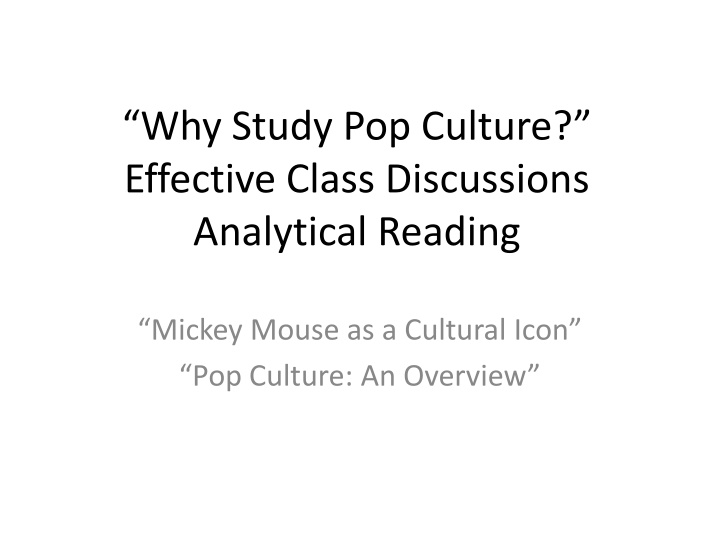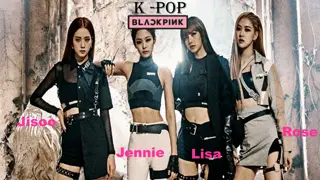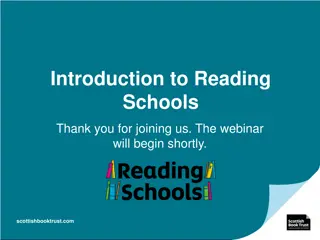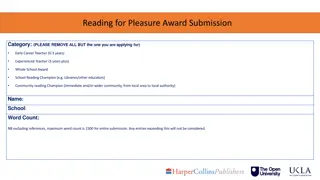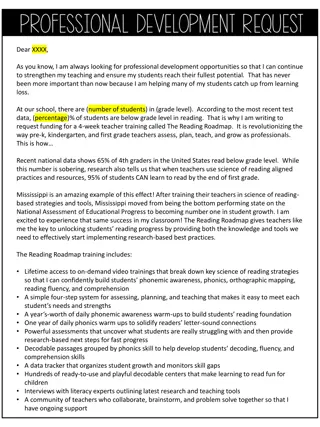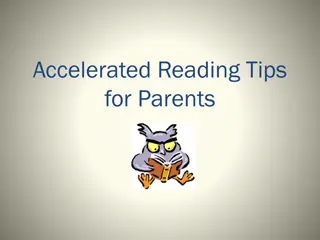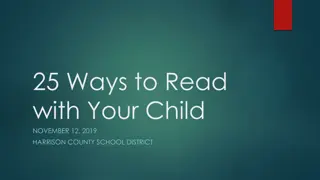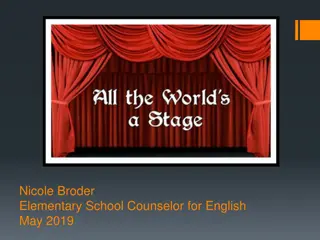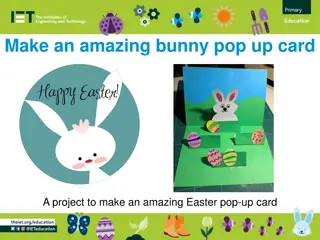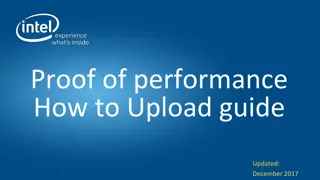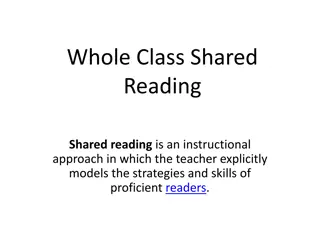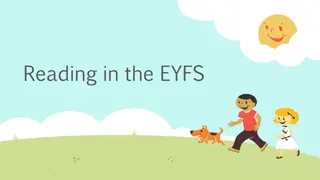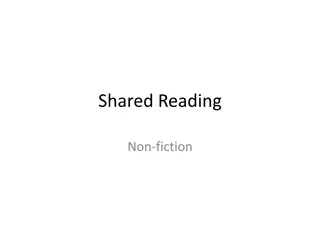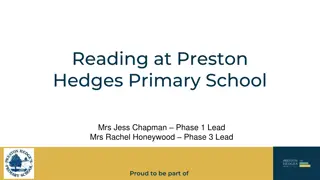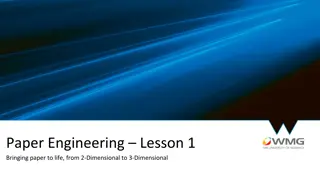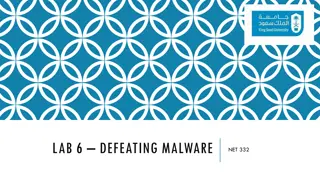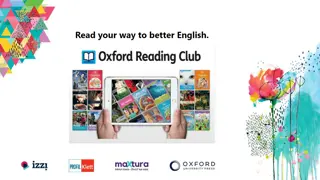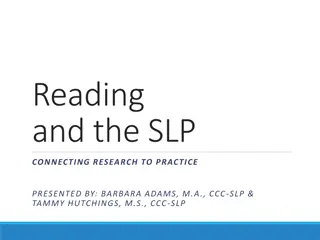“Why Study Pop Culture?” Effective Class Discussions Analytical Reading
Engage with the significance of Mickey Mouse and Disney as cultural icons, exploring their representation of ideas and values. Reflect on childhood memories and enhance class discussions and analytical reading.
Download Presentation

Please find below an Image/Link to download the presentation.
The content on the website is provided AS IS for your information and personal use only. It may not be sold, licensed, or shared on other websites without obtaining consent from the author.If you encounter any issues during the download, it is possible that the publisher has removed the file from their server.
You are allowed to download the files provided on this website for personal or commercial use, subject to the condition that they are used lawfully. All files are the property of their respective owners.
The content on the website is provided AS IS for your information and personal use only. It may not be sold, licensed, or shared on other websites without obtaining consent from the author.
E N D
Presentation Transcript
Why Study Pop Culture? Effective Class Discussions Analytical Reading Mickey Mouse as a Cultural Icon Pop Culture: An Overview
Quickwrite #2 Before you write: Definition time! A cultural icon is a piece of pop culture (an image, a celebrity, a musical artist, etc.) that is so popular as to be immediately recognizable to most people in a culture AND that stands in for an entire set of ideas and values. What do you think about Mickey Mouse and the Disney company as cultural icons ? What are the ideas and values that they represent? Do you have childhood memories of their films or products?
Encouraging Effective Class Discussion Have respect for your classmates, even when you disagree with their ideas. Take time to gather your thoughts. There is no prize for having your hand in the air first. Build our class s understanding of the topic at hand by Adding an additional point or example to what someone else has said. Connecting two ideas that have been discussed separately. Challenging what someone else has said by countering his or her points. See p. 141-144 of They Say, I Say for more pointers. Ground your discussion of a text by quoting specific, relevant passages of the articles we read.
Engaging With What You Read I will be asking you to engage with the articles I assign this semester rather than simply reading. For each assigned reading, you might Do a reading response Annotate (See p. 3 of Mirror on America for an example of annotation.) Look up unfamiliar words. Come to class with questions, concerns, or ideas that the reading inspired in you. Remember, the more carefully you read and prepare at home, the more fully you will be able to participate in the class discussion of the reading and its ideas.
Discussion of They Say, I Say Reading According to the authors of They Say, I Say, why is it important to position yourself and your ideas in relation to what other writers have said about the topic? (Review the Intro and Ch. 1 if you can t remember.) What do you think of the idea of using templates? Do you agree with the author s arguments in favor of them?
Ch 12: Reading for the Conversation Why is it so important to understand the ideas an author is responding to as we discuss individual essays? What are some of the cues authors might give us to indicate that they have been summarizing a point of view that is not their own? Transition phrases such as however, even though Switch to first person point of view
Why study Pop Culture? Historically, academia (schools, universities, professors) put a lot of emphasis on high culture and disregarded pop culture, thinking it wasn t worth studying or analyzing. Recently, many scholars and universities have recognized the value of pop culture as an area of study. Some general assumptions that the study of pop culture makes: The art (this includes movies, music, tv, etc.) that a culture produces reveals what that culture values. The art a culture produces reveals widely held attitudes about important/controversial issues. While Pop Culture can reveal attitudes, it can also change them. In other words, the pop culture that we are exposed to can affect how and what we think.
Class Discussion of Pop Culture: An Overview What, according to the author (Delaney), is the purpose of popular culture? What does it do for us as a society? Do you agree with his observations? How does popular culture help people to create identity? What is the connection between popular culture, social media, and mass media?
Analysis of Pop Culture Look at the list of examples of pop culture on p. xv xvi in your Mirror on America text book, and consider our class list, then answer the following question: We ve made lists, individually and as a class, of examples of pop culture that we enjoy. What are some important issues that your examples of pop culture brings up? In other words, what important issues/ideas might these examples of pop culture lead us to discuss? By answering these questions, we are beginning to do the work of analyzing pop culture.
Mickey Mouse as a Cultural Icon What do you think that the popularity of Disney tells us about ourselves? (Remember, students of pop culture believe that the things that we collectively make popular reveal what we value/desire.) What do you think of the criticisms that the author discusses? What concerns does the author seem to have about Disney? (This is different from the concerns he discusses that other people have.)
Disney and Diversity One of the criticisms of Disney that Forbes discusses is the fact that it has, historically, tended to reflect a predominantly white, middle class world view. While Disney has certainly recently attempted to tell stories about characters who do not reflect this world view, the criticism remains. Two questions: What do you think of this criticism? If it s true, why might it matter? To WHOM might it matter? How much responsibility does any writer/producer of media have to present a diverse, well-developed cast of characters? (And does Disney, because it is so powerful and influential, have more of a responsibility than most companies?)
Practice Using Templates We are going respond to the essay we read for today using ideas from They Say, I Say. Identify an idea in the essay that you would like to respond to. You might start with the template: In his article Mickey Mouse as a Cultural Icon, Bruce David Forbes makes the point that ________________, which is particularly important because ____________________. Try to use at least one other template from Chapter 1. If you are talking about ideas you have held for a long time, you might want to consider the templates on p. 24 under Making something they say something you say If you are talking about ideas that you feel lots of other people (the general public ) have, you might want to consider the templates on the top of p. 24. When you are finished, consider how using a template worked for you. Did you find it easier than coming up with your own structure? Harder? Why?
For Next Class Start to notice whether or not the media you watch/listen to are diverse. If they are, how are minority characters and issues treated/developed? Do work listed on the syllabus. Begin to do research on your own on what is being written about the issue of diversity on TV and in film.
